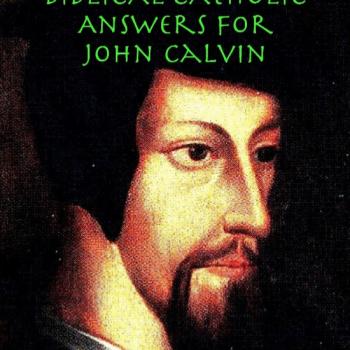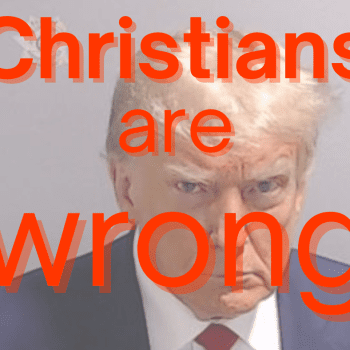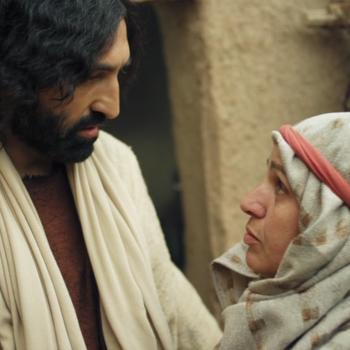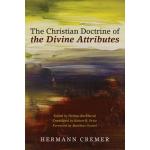My sermon this week asks the question, “Is Your God too Small?”

Usually, I don’t stand in the pulpit and say “You,” because I don’t want to sound like I’m pointing fingers at any one person.
I usually say “we,” because most messages I share start with me, and extend to all of us. You, me, the people in the pews and anyone else with ears to hear.
But this week I specifically ask each person to think about you personally, and your idea, your understanding of God, when I ask, “Is Your God too Small?”
Each of us has a personal understanding of God. A personal relationship with God.
In 1952, Biblical scholar and translator J.B. Phillips published a book entitled Your God is Too Small. “The trouble with many people today,” Phillips wrote 70 years ago “is that they have not found a God big enough for modern needs.”
It was true in 1952, it’s true today, just as it was true in Jesus’ day, just as it was true in the days of Isaiah, Jeremiah, Ezekiel, and Daniel.
“God is bigger than you believe God to be,” said the prophets.
“God is bigger than you believe God to be,” said Jesus.
“God is not 600 rules you have to follow,” Jesus said about the Laws of Moses governing the Jewish people. “God is bigger than the 10 Commandments.”
“A new Commandment,” Jesus said. “I’m giving you a new Commandment – Love God, Love others, on this all the other commandments rest.”
God is bigger than rules. God doesn’t need rules. God has one rule: love God, Love others.
Humans, men, make rules to control other men. Men said you have to follow the rules of Christianity, or you’ll be excommunicated. Agree with the way we read the Bible, in our chosen language, or you’ll be burned at the stake.
And you do know, that people were executed, murdered, tortured to death, simply for translating the Bible from Latin into English? William Tyndale was publicly executed simply for translating the Bible from Latin into English.
For more than 1,500 years of Christianity, the only thing Christians knew about Christianity was what the priests and monks told them.
Imagine if all you knew about the Bible is what priests told you about the Bible, for a few hours once a week.
Imagine if your understanding of God was only what the priest told you God is.
What was the result? God was kept small. God was contained to a Latin Bible that nobody could read. God was kept small by the gatekeepers to keep people controlled. To keep God controlled.
When we keep God small, we allow God to remain distant. Does God watch us from a distance? Or is God moving in and through creation in every moment of time? Now, yesterday, tomorrow, and forever?
Is our understanding of God big enough to embrace the world and close enough to touch our hearts?
Today people are still thinking about a God who is too small. Too many think that their understanding of God is all there is.
The world is bewildering and frustrating. People are irritating and irrational. The world is literally getting hotter every day.
The world is changing, our lives are constantly changing: illness, family crises, challenges at work, and home, and school, the limitations imposed by aging, and inevitable transitions brought on by the simple passing of time.
Time and God are the constants in our lives. Change is a constant. As much as we wish for normalcy, everything is changing.
Everyone is temporary. Everything is impermanent. A small God is often of little comfort in our complex and modern society, and so while the world burns, many lose hope in the small God. And can we blame them?
And a small God can’t do anything about the emptiness of spirit which threatens us. We all live through seasons which demand more than we can possibly deliver. Our energy long gone, needs pile up. Opportunities multiply, but we’re divided. The schedule is jammed full, but our hearts are empty.
We spend our emotional accounts into near-bankruptcy; we’re over-drawn and way over our limits; we max-out our souls.
We are worried and worn-out and withdraw. We face each day emptier than the day before, with little relief in sight.
The hollowness we feel unsettles us and makes us restless. So we try to fill the emptiness with television and the internet, with food, drink, drugs, busyness, or money–with whatever promises relief and might help us to make it through one more day, if only temporarily.
Eventually, the emptiness threatens to consume us; it moves to take over everything else. When it does, a small god can’t help us.
Thankfully, Paul writes to the church in Ephesus to remind them, and to remind us, that the Creator of creation, the Creator of Christ is not a small or distant God.
The real God, revealed to us in the history of Israel and in the life, death, and resurrection of Jesus Christ, is magnificent, mysterious, and mighty.
The real God is vast beyond our comprehending, beautiful beyond our appreciating, and wonderful beyond our imagining. God encompasses everything: past, present and future; near and far; what we have discovered and what remains hidden. God is above and beyond, among and within, high and holy, close and compassionate.
As Paul writes:
“I pray that out of his glorious riches he may strengthen you with power through his Spirit in your inner being, so that Christ may dwell in your hearts through faith. And I pray that you, being rooted and established in love, may have power, together with all the Lord’s holy people, to grasp how wide and long and high and deep is the love of Christ, and to know this love that surpasses knowledge—that you may be filled to the measure of all the fullness of God. God is able to do immeasurably more than all we ask or imagine, according to his power that is at work within us…”
“That is at work within us.”
God’s great love can leave us breathless with astonishment, if we allow it.
Paul prayed that we would know what he admitted was beyond knowing: the breadth and length and height and depth of love. God’s love includes everyone and everything, radiating with a redeeming grace, enveloping our shame and guilt, and shining with a dazzling glory to fill every shadowy corner of our hearts and cast hope across the universe.
Paul doesn’t give us a list of assignments for us to carry out or expectations to meet or demands to shoulder. We don’t have to offer sacrifices at the Temple or buy indulgences from the Church. There are no man-made rules to follow, to conform or be cast out. The God made known and real to us in Jesus isn’t standing over us with a clipboard and a checklist.
Paul’s prayer simply and compellingly invites us to realize how much God loves us — to experience God surrounding, encompassing, and holding us with love. And it promises us that God will fill us when we are empty, make us strong when we are weak, and keep us rooted and grounded when everything is changing.
Each of us is invited into Paul’s letter to the people so long ago listening in the church in Ephesus and to the people here today. Each of us can ask God every day to fill us again with a sense of wonder and majesty, to fill us with God’s own life, to enfold us in an embrace of divine love.
Like Paul, we can pray to receive God’s strength, so that we may live more faithfully and more joyfully in these challenging times of change. We can pray that we open ourselves to God’s fullness . . . we can pray that God will water the dry spaces of our souls so once again these once-empty places will once again overflow with abundance and glory and joy.
Today, Paul reminds us that we have a vast, loving, and powerful God who is “at work within us” and “is able to accomplish abundantly far more than all we can ask or imagine.
“To that God be glory in the church and in Christ Jesus to all generations, forever and ever.”
For other articles, visit:
The Civil Rights Struggle Continues, so Others May be Free
The Clark Doll Study Documenting the Damage of Segregation
Ω
Pastor Jim Meisner, Jr. is the author of the novel Faith, Hope, and Baseball, available on Amazon, or follow this link to order an autographed copy. He created and manages the Facebook page Faith on the Fringe.

















